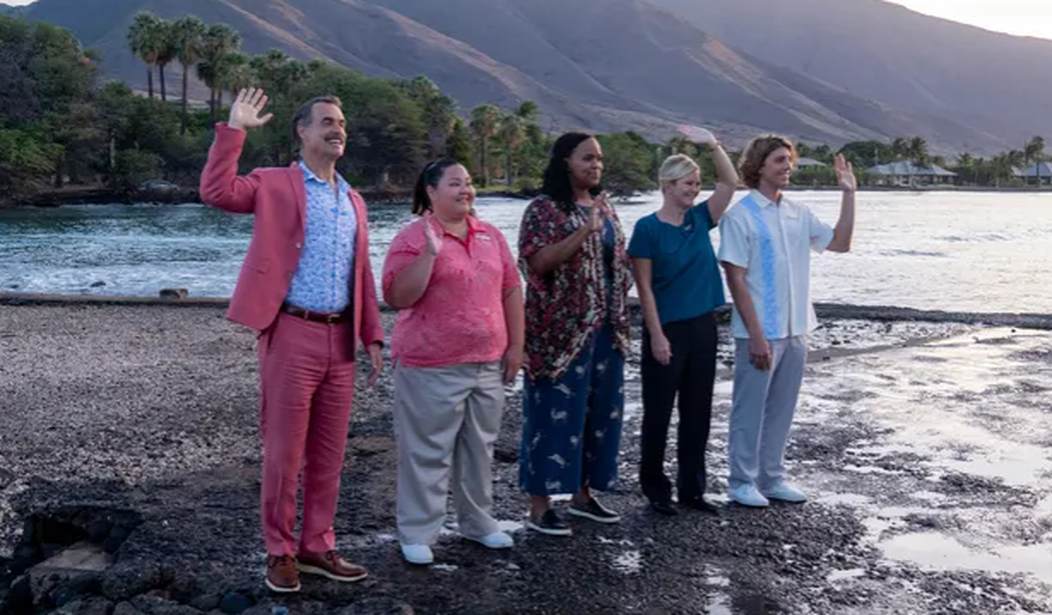Last week The Guardian heralded HBO’s The White Lotus as the second-best television show of 2021. The social satire centers around a luxurious Hawaiian resort, where working-class service workers intermingle with upper-crusty vacationers like the Mossbacher family, made up of mom Nicole, dad Mark, college-aged daughter Olivia, Olivia’s friend Paula, and teenage son Quinn.
As the plot unfolds for the Mossbachers during the show’s six episodes, a handful of traditionally conservative themes emerge. Here’s how:
Quinn is a wimp who gets banished from the main lodge by his older sister Olivia, who directs him to occupy a windowless closet for the duration of their stay—a fate he seems to willingly accept. After all, dark closets make for good places to alternate between masturbating and playing Nintendo all day and night.
But then something magical happens. Quinn’s electronics get incidentally washed away into the foamy deep blue sea. And with his eyes now looking forward instead of down, Quinn notices a bunch of local dudes going out canoeing. He joins them, loving the physically demanding and potentially dangerous activity.
And then when it comes time to fly back home, for Quinn to return to his normal life of screens and ennui, Quinn acts boldly—rejecting his old life as he sprints out of the airport, fleeing his parents and sister to rejoin his newfound boys. They have a mission to complete. To canoe all the way to a neighboring island. And dammit if Quinn will be denied inclusion on this adventure.
All the while there is Quinn’s dad Mark, a well-meaning but listless and unaccomplished fella who is outshone by his corporate executive wife, Nicole. Mark’s mid-life masculinity crisis hits him literally in the testis when he learns he may have a cancerous growth in his sack. Making matters of the male more complicated is his discovery that his own father died of AIDS after having closeted homosexual relationships way back when.
A lot to process at once.
Recommended: Five Times ‘Seinfeld’ Jumped The Shark
But then after an emotional argument with wife Nicole, who retreats sobbing and alone to their hotel room only to stumble upon a thief who’d broken into their room to steal their jewelry, it is Mark who appears and physically confronts the robber, saving the day after taking a punch to the face like a champ.
Now Quinn and Olivia think dad is a hero. And Nicole rediscovers the long-lost hots she has for her husband, resulting in a rewarding sexual encounter between the two and Mark’s manhood rediscovered.
And speaking of the thief, he was an otherwise innocent island boy named Kai who worked at the hotel and would often perform Hawaiian dances for the entertainment of the guests. Olivia’s woke college friend and vacation tagalong Paula convinces Kai to steal her host family’s jewels in order to fund a poorly conceived legal scheme that would theoretically bring ownership of the hotel back to Kai and the aboriginal islanders he descends from. No more cultural appropriation. Take back the homeland. This is your chance!
But Kai is interrupted by Mark, caught, and arrested. His life probably ruined, while woke Paula heads back to the mainland and returns to college no worse for the wear.
The morals of this story seem awfully traditional and conservative, don’t they?
The actual outcome of Paula’s fanciful woke advice was to permanently harm the very person she was claiming to be advocating for. Defund the police much?
Mark’s physical prowess and defense of his wife was rewarded with her love and affection. Sounds kinda like patriarchy.
And Quinn embraced the heroic adventure complex that is so common in teenage boys but often misconstrued as toxic masculinity and suppressed with Ritalin, Adderall, and screens.
The Guardian is right. The White Lotus is an excellent show indeed. We just have different reasons for thinking so.









Join the conversation as a VIP Member